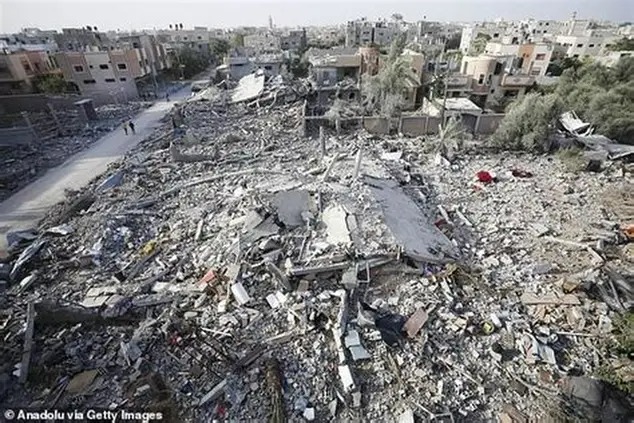Sharm el-Sheikh and the Shadows of History

History, when it repeats itself, does so with a painful consistency. The recent peace agreement signed between Israel and Palestine in Sharm el-Sheikh, though welcomed by many as a diplomatic triumph, raises more questions than it answers. The gathering of world leaders, including the President of the United States, lent the event a ceremonial weight; yet, the conspicuous absence of Israeli Prime Minister Benjamin Netanyahu overshadowed the symbolism of unity that such moments usually intend to convey. In international diplomacy, gestures often carry greater significance than words—and an empty chair at such a table speaks louder than a thousand signatures.
To understand the implications of this accord, one must travel through the corridors of history. The Israeli-Palestinian conflict has been punctuated by countless accords—Camp David, Oslo, Wye River, and Annapolis, among others—all draped in the language of hope, yet ultimately betrayed by the realities of mistrust and imbalance. Each agreement began with applause and optimism, only to be eroded by violence, settlements, and political expediency. The peace of Sharm el-Sheikh, therefore, is not the dawn of a new chapter; it is another verse in a long and tragic poem written in the ink of broken promises.
The fundamental question remains; what is the true enforceability of such agreements? A peace accord is not merely a collection of signatures but a covenant of trust. Without mutual respect and the will to abide by its spirit, the document is reduced to little more than parchment and ink. In the absence of clear guarantees and mechanisms for enforcement, any agreement between parties with a history of hostility becomes fragile—an arrangement that trembles at the first gust of political change. Who will hold either side accountable if one defies the clauses? The international community may issue statements and convene emergency meetings, but the world has witnessed again and again that resolutions alone cannot restrain a nation’s ambition or fear.
The presence of powerful nations at the ceremony may lend the agreement diplomatic legitimacy, but moral legitimacy comes only from sincerity and justice. No treaty, however well-drafted, can sustain peace if one party continues to occupy, oppress, or provoke. The imbalance of power between Israel and Palestine has been the central obstacle to every peace effort. The stronger party often negotiates from a position of control, while the weaker negotiates from necessity. In such a dynamic, peace becomes not a partnership, but a concession. Without equality of intent and mutual recognition of suffering, peace remains an illusion.
The absence of Netanyahu at the table invites speculation. Was it a political calculation to avoid domestic backlash, or an indication of Israel’s reluctance to accept the moral and practical obligations that peace demands? Symbolically, it echoes the hesitation that has marked Israel’s approach to genuine reconciliation. True peace requires courage—not only to sign, but to surrender certain privileges of power, to dismantle structures of occupation, and to extend the hand of humanity even when distrust lingers.
History teaches us that peace without justice is a pause, not a conclusion. The Palestinian question is not merely about borders; it is about dignity, statehood, and survival. Any agreement that does not address these core issues is merely a truce awaiting its expiry date. Similarly, any framework that allows one side to act with impunity while the other is bound by restraint cannot endure. The lessons of the past are clear; when peace is imposed rather than nurtured, it decays from within.
Philosophically, peace is not an event—it is a process of transformation. It requires not only political signatures but moral awakening. Nations must evolve beyond the mindset of victory and defeat to embrace coexistence. In this sense, the peace of Sharm el-Sheikh will only have meaning if it transforms hearts as well as policies. The children of Gaza and Tel Aviv must inherit not the bitterness of their fathers but the possibility of friendship. Yet such transformation cannot be legislated; it must be cultivated through fairness, empathy, and the humility to acknowledge past wrongs.
Academically, one might frame this as a problem of asymmetrical negotiations and enforcement theory. Without a credible external guarantor or binding arbitration mechanism, the incentives for compliance diminish over time. If the agreement lacks teeth, it cannot bite when breached. History shows that when Israel expands settlements or conducts military operations in defiance of accords, global powers rarely move beyond expressions of “deep concern.” Similarly, when extremist factions within Palestine retaliate, they too jeopardize the very peace their people long for. Thus, the failure is not only political—it is moral. The world’s silence, selective outrage, and short-lived attention have all contributed to the erosion of accountability.
In moral terms, peace demands sacrifice from both sides. It requires Israel to see beyond its security walls and Palestine to rise above its despair. It requires the world to uphold justice not through speeches but through sustained action. If the international community truly seeks to guarantee peace, it must ensure that violations are not met with indifference. Guarantees cannot exist in rhetoric—they must live in reality.
And so, as the ink dries on another agreement, the world watches—half in hope, half in doubt. The setting of Sharm el-Sheikh, a resort once associated with tranquility and diplomacy, may again witness the familiar arc of optimism fading into cynicism. Yet, perhaps, in this weary repetition, lies a glimmer of awakening: that peace cannot be gifted, it must be earned through honesty, equity, and respect for human life.
If the architects of this accord have truly learned from history, then perhaps this time the peace will hold—not because it was signed in grandeur, but because it was implemented in good faith. Otherwise, it will join the archives of unfulfilled promises, a reminder that in the pursuit of peace, words are many, but courage is rare.


